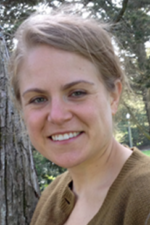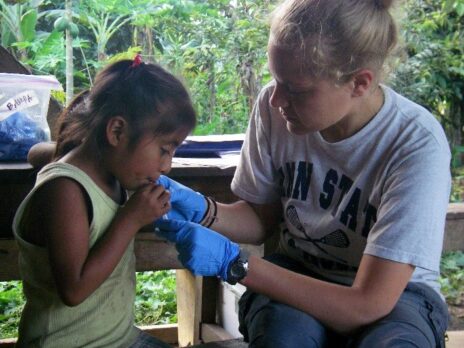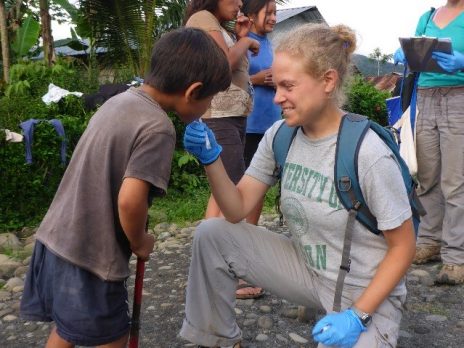 Dr. Melissa Liebert | Human Biology and Health
Dr. Melissa Liebert | Human Biology and Health
I’m an Assistant Professor in the Department of Anthropology at NAU. I joined the NAU community in 2017 after receiving my Ph.D. in Biological Anthropology from the University of Oregon. Throughout my graduate training, I acquired a broad interdisciplinary background in human evolutionary biology and biocultural anthropology. These research domains integrate aspects of human biology and adaptation with historical, sociocultural, and political-economic contexts to offer a holistic understanding of human health and wellbeing. Using these frameworks, my research explores the pathways through which lived experiences become biologically embodied to influence human variation in health and disease. I am particularly interested in the mechanisms linking sociocultural and environmental factors to physical and psychosocial stress throughout the life course, with the goal of addressing health disparities for underrepresented and medically underserved populations.
To explore these areas of study, I have conducted over a decade of research with the Shuar Health and Life History Project (SHLHP). The Shuar are an Indigenous population from the Amazonas region of southeastern Ecuador. Traditionally, Shuar were semi-nomadic, hunter-horticulturalists who lived in small scattered households; however, Shuar are currently experiencing a range of social, cultural, and economic changes associated with increased integration into a market-based economy. For example, many Shuar have access to modern infrastructure (e.g., roads, electricity), manufactured goods (e.g., radios, televisions), and formal employment and education systems.
Considering these rapid lifestyle changes, one of the main objectives of the SHLHP is to investigate the effects of economic development on individual- and community-level health outcomes among the Shuar. Recent studies by the SHLHP team demonstrate that factors associated with market integration have altered Shuar health patterns, particularly those associated with chronic disease risks, infectious disease, physical activity levels, immune function, and childhood growth and development. For example, a recent study I published with my colleagues demonstrates that Shuar from more market-integrated communities have higher total cholesterol levels compared to Shuar from remote villages. These disease risks appear to be linked to lifestyle and dietary factors, including increased consumption of processed foods in addition to changes in physical activity, subsistence strategies, and access to medical care.

Another main objective of the SHLHP is to use evolutionary approaches and biomarker methods to examine trade-offs between competing physiological demands (e.g., maintenance, immune function, physical activity, growth, reproduction) and to use this information to better understand health across the life course. For example, in collaboration with my SHLHP colleagues, I have examined the trade-offs between immune function and childhood growth among the Shuar. This research demonstrates that elevated immune activity is associated with growth faltering among Shuar children across timescales that range from days to years.
A final key objective of the SHLHP is to provide health information to participants and community partners to assist in local health efforts and to improve the wellbeing of the Shuar. My colleagues and I strive to shape opportunities that empower Shuar communities to inform decisions about the research process and future research directions.
I also have training in quantitative methods, database management, and laboratory research. I established the Human Biology and Health (HBH) Laboratory at NAU, which maintains facilities and equipment to store and prepare various biological samples for laboratory-based analysis of stress physiology, immune function, and cardiovascular health. As part of the HBH lab, I provide various opportunities for NAU undergraduate and graduate students to learn methods in biocultural anthropology (e.g., community-based fieldwork, minimally invasive biomarker collection) and to engage in human biology research. Please email me (Melissa.Liebert@nau.edu) if you have any questions about my research or the HBH lab at NAU!

